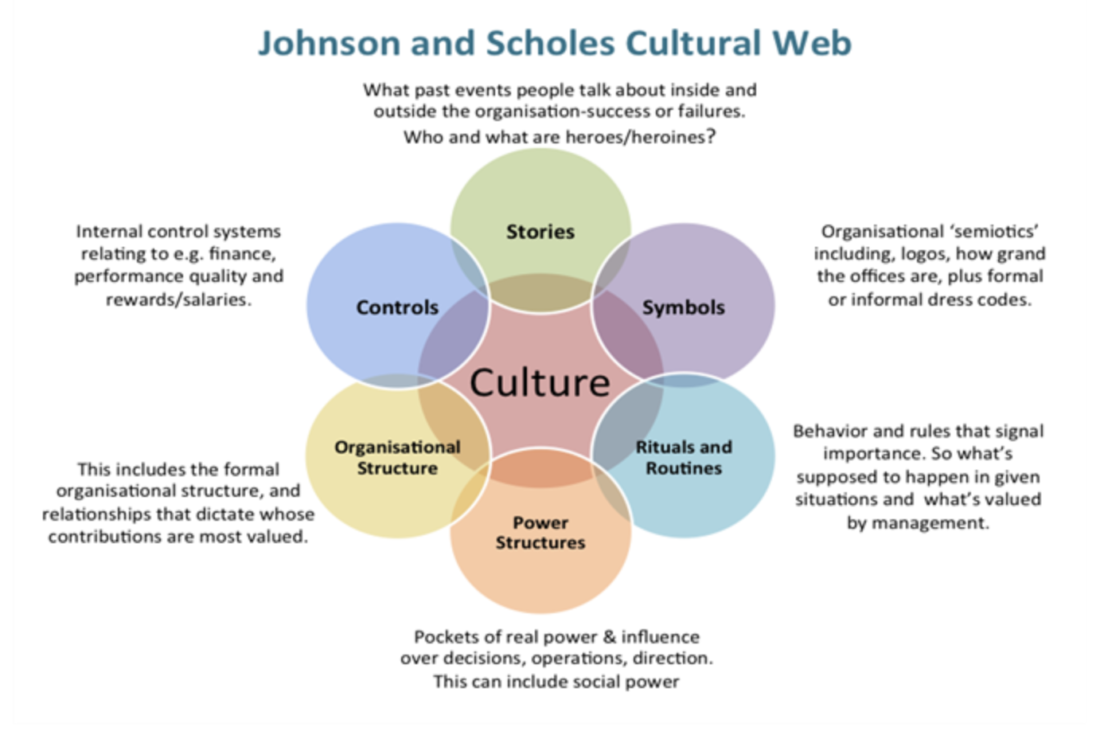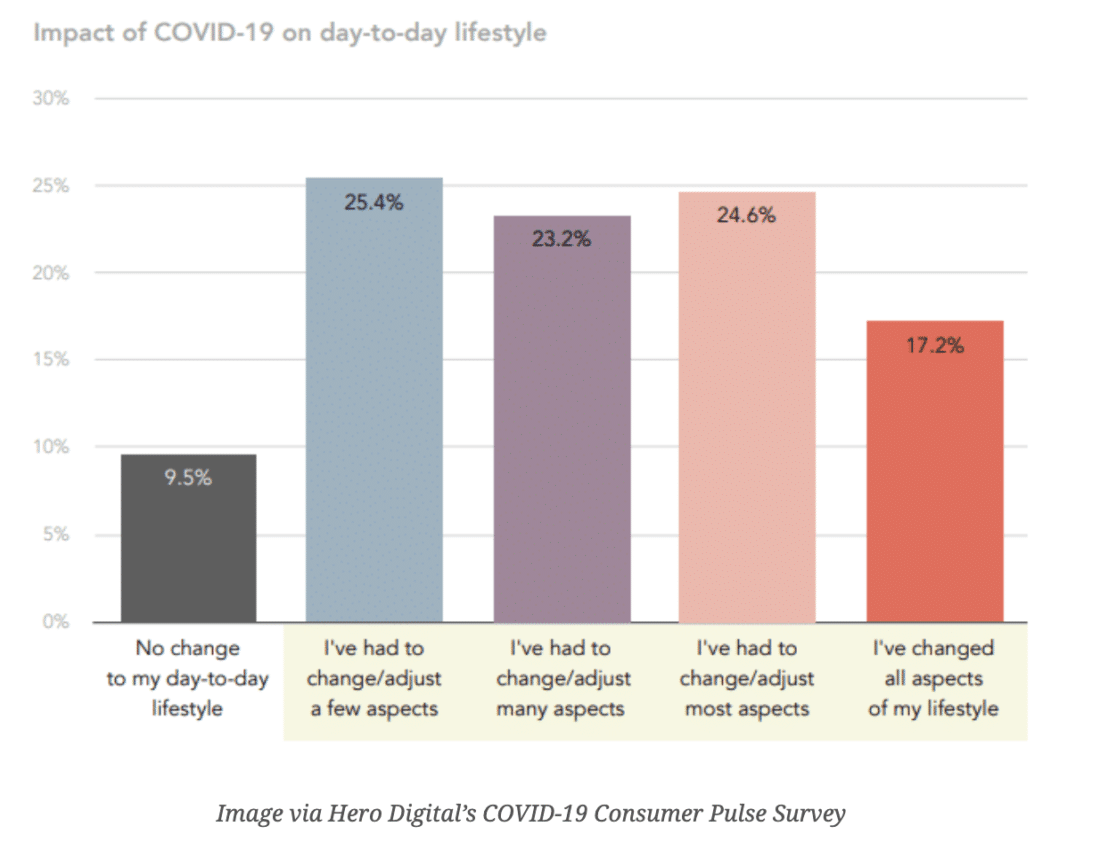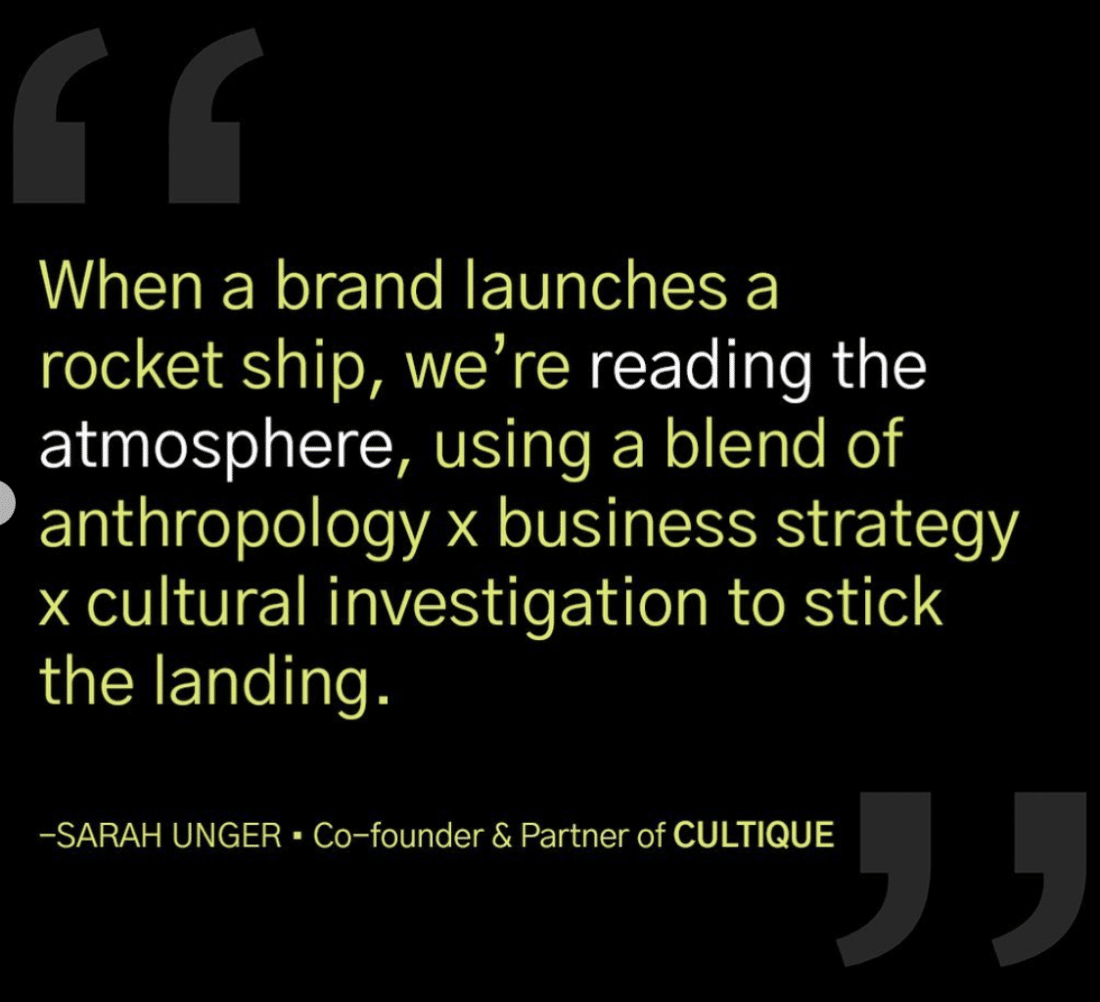We like to think often of Bruce Lee’s quote, Be like water.
Sarah Unger is Partner + Co-Founder at CULTIQUE, a cultural insights and strategy venture of CIVIC, which launched in the fall of 2020. With CEO + Founder Linda Ong, Unger leads the premium boutique partnering with forward-looking businesses in media, entertainment, technology and consumer spaces.
Unger is an award-winning cultural and consumer strategist as well as a frequent public speaker and commentator. She works with such recognizable brands as YouTube, Apple, WarnerMedia, Disney/ABC, and NBCU to cultivate growth in an uncertain world.
In this episode of Velocitize Talks, Unger shares her unique insights on company and societal culture, adaptivity and cultural anthropology.
Cultural Anthropology and Adaptation (1:16)
We’re increasingly looking to anticipate mindset by piecing together the cultural tea leaves that we’re reading in conversations. Because we’re in such a unique time we’re also reconciling this with what we know to be true about behavior that’s followed similar historic shifts in the past.

To truly understand a client’s needs, CULTIQUE first explores the cultural atmosphere of the workplace, and focuses on adaptability and fluid approaches. Unger describes this comprehensive analysis as sitting at the “intersection of cultural anthropology branding and business strategy.”
(Listen to a podcast of CULTIQUE co-founders Unger and Linda Ong discuss their vision for the company.)
The American Marketing Association points to cultural anthropology as a valuable way to inform your company’s brand strategy. However, as famed management consultant and author Peter Drucker once said, “Culture eats strategy for breakfast.”
In other words, both are important but understanding a company’s culture will more easily pave the way to internal and external success.
The Pandemic Effect (2:56)
Our goal is not to make coffee table books of trends but insights and implications that can be actually woven into a client’s business strategy. We’ve become even more agile as the pace of change has accelerated during this pandemic.

Both business culture and societal culture have undergone massive paradigm shifts during Covid-19. According to Unger, “more has changed in the last eight months than perhaps the past 80 years.”
Cultural divisions in society as a whole have become more pronounced due to isolation, uncertainty and the nature of social media.
The effect of these cultural changes has been evident with the changing behaviors of consumers and overall lifestyle changes. Ernst & Young researchers, for example, have even identified four new types of consumer behaviors brought on by Covid-19.
Ready, Set, Pivot (5:07)
A lot of brands are coming to terms with the notion of radical flexibility. Pivoting as a skill set is going to prove invaluable to companies and brands who want to sustain in the long term.
Pivoting is a key skill that essentially changes the direction and scope of a business when its products or services are no longer succeeding in the current environment—the pandemic being a prime example.
Businesses can also adapt their marketing efforts to reflect a changing audience with different priorities. Pivoting can be looked at as a component of digital rebranding, and vice versa.
According to B2B research from the Content Marketing Institute, 83% of marketers said they were able to make fast and effective changes to their content messaging once Covid-19 struck.
Citizens of the World (6:13)
How can brands help push us to the right side of history? What can your brand do to activate change? There’s been a broad recognition that brands and companies are not third-party entities. They’re citizens and they wield civic responsibility as citizens.

As an active partner in addressing Covid-19 misinformation, CULTIQUE developed a non-profit coalition and national messaging campaign called “Be A Protector” to galvanize leading brands to model and normalize safe Covid behavior.
Company values and responsibilities have never seemed more important than right now, from responses to the pandemic to speaking out against violence and racism.
Facebook and Twitter, for example, have come under increasing scrutiny as the Covid-19 user began spending a daily average of 2 hours and 24 minutes across social networks. From vaccine safety to Black Lives Matter, people have turned to brands to see how they respond.
In fact, Gen Z in particular expects brands to be vocal in their values. Seventy-seven percent of Gen Z has taken action for a cause they believe in. And 23% have boycotted a brand they disagreed with.
Marketing and the Human Experience (7:56)
How can marketers help teach people how to think instead of telling them how to live?

Although marketing and advertising have contributed to our culture in countless ways, the industry has also “inadvertently stereotyped people into demographic buckets that are helpful to sell products but aren’t necessarily reflective of the depth of the human experience,” Unger says.
Naturally retail has suffered some setbacks during Covid (although e-commerce has continued to grow). In a recent article in Forbes concerning shopping, fashion and the return of “Sex and the City,” Unger said she expects mindfulness and wellness to have a central theme in the upcoming post-pandemic series and, perhaps, a “more self-aware point of view on inequity and sustainable consumption.”
To learn more about Cultique, visit their website and follow them on LinkedIn and Instagram. To stay up to date with Unger, follow her on LinkedIn and Twitter at @sarahjaneunger.
The post Velocitize Talks: Sarah Unger of CULTIQUE on Cultural Anthropology and the Human Experience appeared first on Velocitize.


0 Comments